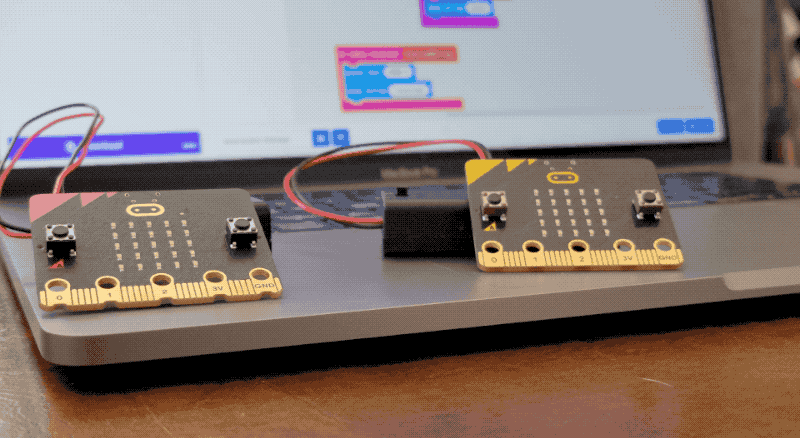| Celebrate Hour of Code and Computer Science Education Week | | | Next week, the annual Hour of Code celebration will introduce millions of students to computer science using fun tutorials that show that anyone can learn to code. This spotlight on coding coincides with Computer Science Education Week, which begins on Monday, Dec. 9. Each year, this event inspires K-12 students to learn computer science and advocates for equity in computer science education.
Launch your celebration with NASA computer science educational resources. | | Virtual Learning Opportunities | | | Webinar: 3D Thursdays for Rural Educators – Exploring Summer STEM Opportunities Audience: U.S. rural educators of grades 3-12 Event Date: Thursday, Dec. 5, at 8 p.m. EST Contact: Rachael.Arens@ops.org Join NASA’s Science Mission Directorate for a monthly series that connects rural educators to resources, networking, and professional development opportunities. This month’s webinar will feature experts discussing two summer STEM opportunities and how you and your students can get involved. The Liftoff Summer Institute is a weeklong aerospace workshop emphasizing NASA STEM through speakers, hands-on activities, and field investigations that promote space science and enrichment activities. The STEM Enhancement in Earth Science (SEES) Summer Intern Program engages high school students to view and investigate NASA remote sensing data, mission design, analysis of ice sheets, Earth’s gravity field, and more alongside project scientists.
Click here to register to attend. | | | Virtual and In-Person STEM Engagement Sessions: NQuest Audience: STEM educators at Title I middle schools Virtual Session Dates: Mondays and Tuesdays In-Person Session Dates: Thursdays and Fridays Contact: AR-NQuest-Mail@mail.nasa.gov NQuest (NASA Quest) offers no-cost STEM engagements to Title I middle schools. Through hands-on workshops, immersive planetarium shows, and interactive exhibits, NQuest was created to spark a lifelong interest in STEM for students. NQuest is available in-person at Chabot Space & Science Center as well as virtually nationwide. Sign-ups are available now.
Click here for full details and registration information. | | Take Part in NASA Research | | | NASA GLOBE Observer Intensive Observation Period: Urban Heat Island Effect/Surface Temperature Audience: All educators, students, parents and caregivers Observation Dates: Now through Tuesday, Dec. 31 Contact: kevin.czajkowski@utoledo.edu Cities tend to be hotter than the rural areas that surround them. This Urban Heat Island Effect is the result of concrete, asphalt, and a lack of trees. The Global Learning and Observations to Benefit the Environment (GLOBE) Program invites you to collect temperature data near you to help scientists better understand this phenomenon. During the month of December, collect data and share using the GLOBE Observer app or the GLOBE website.
Click here to learn more about the campaign and how to participate. | | Coming Up Later This Month | | | Mark your calendar to stay up to date with these upcoming events to make timely STEM connections!
Friday, Dec. 13 - Saturday, Dec. 14: Get skywatching tips for the Geminid meteor shower peak in the "What's Up for December?" video.
Tuesday, Dec. 17: Celebrate the anniversary of the Wright Brothers' first flight with a paper airplane challenge. Saturday, Dec. 21: Welcome Winter in the Northern Hemisphere by learning about the solstice. Tuesday, Dec. 24: As the Parker Solar Probe makes its first of three final close approaches to the Sun, test your knowledge of the mission with an interactive Kahoot! quiz. | | | NASA L’SPACE Program – Spring 2025 Audience: Undergraduate and graduate STEM students Application Deadline: Friday, Jan. 10 Contact: LSPACE@asu.edu The NASA Lucy Student Pathway Accelerator and Competency Enabler (L'SPACE) Program is a free, online, interactive program for students interested in pursuing a career with NASA or other space organizations. L'SPACE consists of two academies: the Mission Concept Academy and the NASA Proposal Writing and Evaluation Experience Academy. Students may participate in one academy per semester. Each 15-week academy is designed to provide unique, hands-on learning and insight into the dynamic world of the space industry. Students can expect to learn NASA mission procedures and protocols from industry professionals as they collaborate with fellow team members to complete mission-related team projects. | | | Call for Proposals: Future Investigator in NASA Earth and Space Science and Technology Audience: Researchers, graduate students, and Ph.D. scientists Pre-proposal Teleconference: Friday, Dec. 6, at 2 p.m. EST, see Section 12.11 for details Proposal Deadline: Feb. 5 Contact: HQ-FINESST@mail.nasa.gov NASA’s Science Mission Directorate seeks proposals from accredited U.S. universities for research grants to begin in the 2025-26 academic year. Each proposal must identify a master’s or Ph.D. student, or both, in an eligible Earth- or space sciences-related discipline as the future investigator. Projects may propose up to a three-year period of performance. Visit the website for details and proposal requirements. | | Opportunities With Our Partners | | | NASA Office of STEM Engagement We’re launching STEM Engagement to new heights with learning resources that connect teachers, students, parents and caregivers to the inspiring work at NASA.
Visit stem.nasa.gov | | | | The National Aeronautics and Space Administration
As explorers, pioneers, and innovators, we boldly expand frontiers in air and space to inspire and serve America and to benefit the quality of life on Earth.
Visit nasa.gov | | | | | |

















